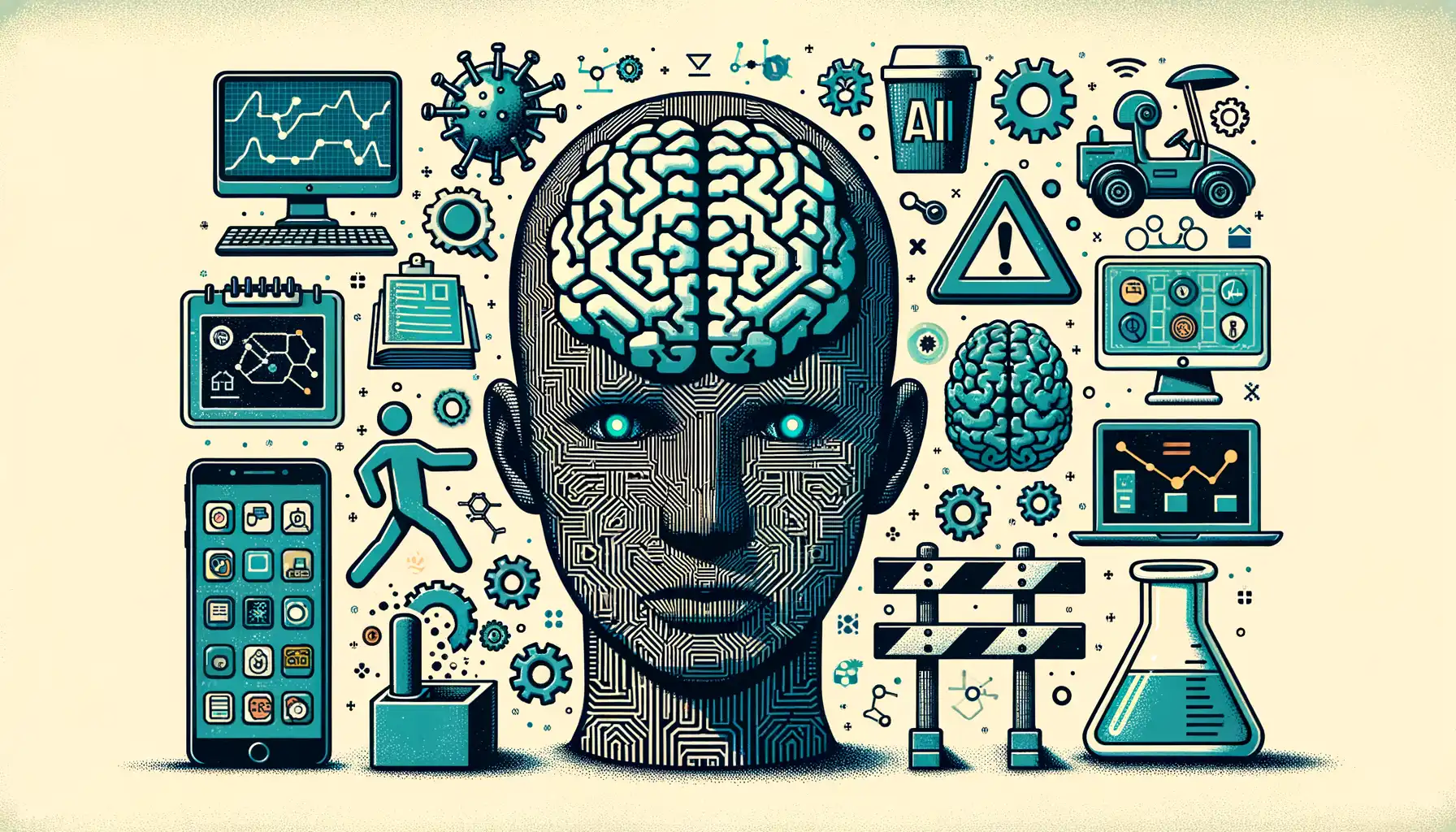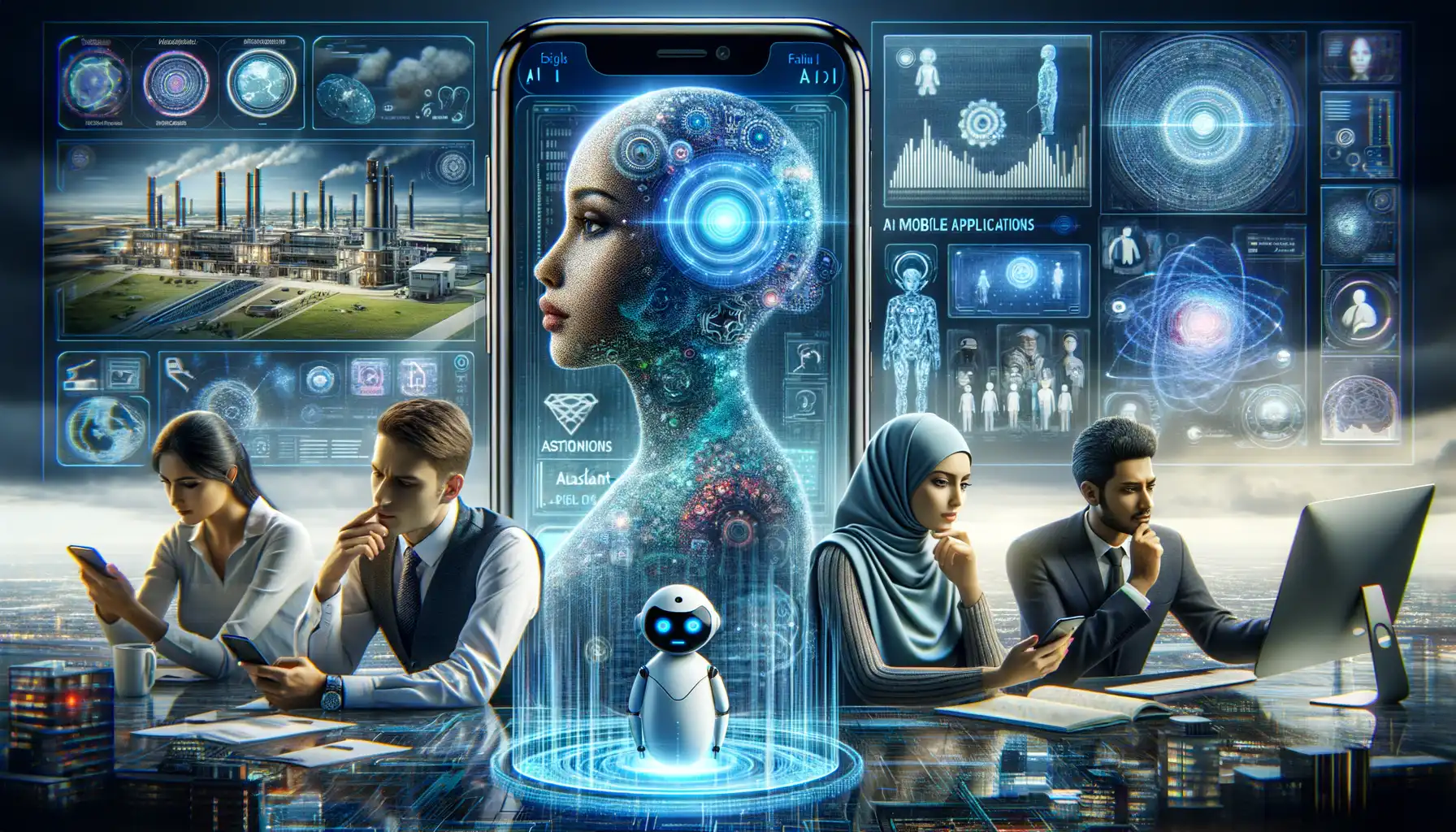Introduction to AI in Mobile App Development
A Glimpse Into the AI-Powered Mobile App World
Picture this: your favorite mobile app anticipating your every need, like an old friend who knows you better than you know yourself. That’s the magic of artificial intelligence (AI) woven into mobile app development today. It’s no longer just about creating functional apps; it’s about crafting experiences that feel almost human, yet powered by brilliant machine learning algorithms.
From ride-hailing apps guessing your destination before you type it in, to personalized fitness coaches cheering you on from your pocket, the possibilities with AI are staggering. But how does this all come together? Let’s break it down:
- Machine learning: Apps that actually “learn” from your behavior and improve results. Think of Spotify curating songs that match not just your taste but even your mood.
- Natural language processing (NLP): Conversational AI making chatbots sound…well, almost human.
- Computer vision: Ever used face filters or scanned a product with your phone’s camera? That’s AI flexing its visual muscles.
Why Is AI a Game-Changer for Developers?
Imagine building an app where recommendation engines feel like they’re reading minds, or fraud detection systems work tirelessly in the background like your invisible bodyguard. For developers, AI technology is the ultimate toolkit. It lets them make apps smarter, faster, and more engaging—without losing the essence of personalization.
The best part? AI isn’t some futuristic buzzword anymore. It’s here, weaving itself into the DNA of our daily lives through mobile apps, one smart feature at a time. Ready to dive deeper?
Key AI Technologies Transforming Mobile Apps

Game-Changing AI Features Powering the Mobile World
Picture this: your favorite mobile app knows exactly what you need before you even ask for it. This isn’t magic—it’s the transformative power of AI technologies working behind the scenes! Let’s dive into what’s making these little wonders tick.
First up, Natural Language Processing (NLP). From chatbots that feel like actual humans to voice assistants like Siri or Google Assistant, NLP is fueling seamless conversations. It’s how apps understand your text messages or respond to your voice commands with jaw-dropping accuracy.
Then there’s Machine Learning (ML), the master brain behind tailored recommendations. Ever wondered how Netflix knows exactly which show is your weekend vibe? Or how shopping apps suggest products you never knew you needed? That’s ML, silently crunching numbers and analyzing patterns.
- Computer Vision: Think Instagram filters that track your face perfectly or AR apps that let you “try on” glasses virtually.
- Predictive Analytics: Fitness apps estimating your next run pace or budget planners warning when you’re close to overspending.
It’s not just clever—it’s revolutionary. These tech superheroes are reshaping how we interact with our phones, one swipe at a time.
Impact of AI on User Experience and Engagement

Redefining Personalization with AI
Imagine opening a mobile app that feels like it knows you inside and out—like a friend who guesses your favorite coffee order before you even say a word. That’s the magic of AI-driven user experiences. By analyzing every tap, swipe, and pause, AI crafts an interface that’s not just functional but feels tailored to your unique preferences.
Take music apps, for instance. Thanks to AI, they don’t just recommend songs; they predict the *exact* vibe you’re craving on a Sunday morning stroll. This level of personalization isn’t by chance—it’s powered by algorithms that devour data like candy and spit out insights that feel almost psychic.
- Dynamic voice assistants anticipate follow-up questions and respond naturally, making interactions smooth and human-like.
- Predictive search saves you time by suggesting results before you’ve finished typing.
Boosting Engagement Through Unforgettable Experiences
Ever notice how some apps make it impossible to put your phone down? That’s AI at work, weaving subtle psychological threads into your experience. From addictive gamified rewards to chatbots that joke back, it’s all about keeping you hooked.
For example, e-commerce platforms use AI to turn indecisiveness into action. Spot a pair of shoes you like? The app might pop up with “Only 2 left in stock!”—cue instant purchase. These micro-interactions, powered by AI, don’t just nudge; they *enthrall*.
Challenges and Limitations of AI in Mobile App Development

Unpacking the Tough Spots in AI Integration
AI in mobile app development sounds like magic, doesn’t it? But even the most dazzling magic tricks have their glitches. While AI promises transformation, behind those sleek algorithms and seamless experiences lie real-world hurdles that developers must tackle head-on.
First off, let’s talk about **data dependency**. AI thrives on data—massive amounts of it. But what happens when the data is biased or incomplete? Picture building a navigation app with a map missing entire neighborhoods! That’s how blind AI can be without diverse, quality data.
And then there’s the elephant in the room: **costs**. Advanced AI tools don’t come cheap. From hefty computational power to skilled talent, the price tag can feel like scaling Mount Everest.
Add to this a constant balancing act between smarts and speed. Ever tried waiting for an “intelligent” app that takes an eternity to process your request? Frustrating, right?
The bottom line: implementing AI is a test of patience, resources, and some creative problem-solving. But overcoming these challenges? Pure innovation gold.
Future Trends and Innovations in AI for Mobile Applications

The Dawn of Hyper-Personalization
Picture this: Your mobile app feels like it knows you better than your closest friend. That’s not far from the truth with future AI innovations steering us toward what’s being called hyper-personalization. Imagine mobile apps that don’t just recommend a playlist but curate songs based on your mood, weather, and even your heart rate—because yes, wearable tech is in on this too!
AI-driven algorithms are set to evolve from reactive systems to proactive geniuses. For instance:
- Emotion AI: Apps may use facial recognition, tone analysis, or text sentiment to adapt their responses. Your fitness app might cheer you up with motivational quotes when it detects frustration.
- Predictive UX: Say goodbye to endless scrolling—AI could pre-load content you’ll love before you even tap that search button.
The goal? A frictionless experience that makes every tap feel magical.
Smarter, Faster, and Greener
Speed and sustainability are the name of the game in AI’s next chapter. Thanks to on-device AI, apps will soon process complex tasks without relying on external servers. Translation? Everything happens faster—think real-time language translation during video calls or instant photo editing without delays. Not to mention, fewer server calls mean a smaller carbon footprint, making your app indulgence a little kinder to Mother Earth.
What’s most exciting is how these innovations dance between dreamlike convenience and cutting-edge practicality. The future of AI in mobile apps isn’t just about efficiency; it’s about transforming our interaction with technology into something genuinely intuitive…and maybe even a little magical.






